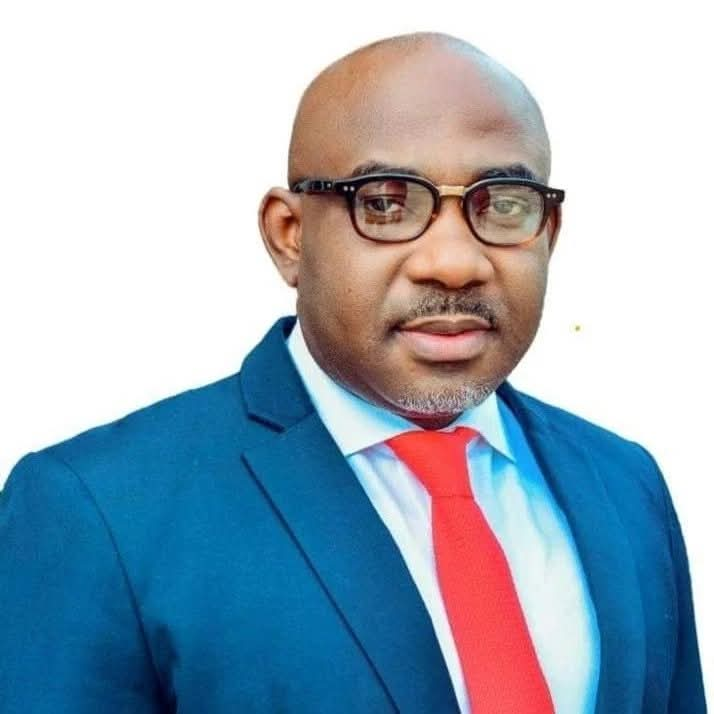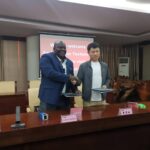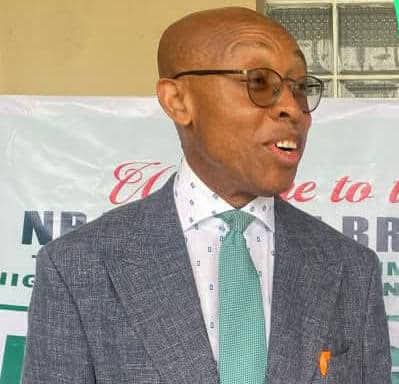By Dr. Chimezie Amadi
As the world moves rapidly into an era where technology is not optional but essential, the urgency to build a digitally skilled workforce in Imo State has never been greater. Every major headline from global industries shows that the digital economy is already reshaping how nations work, compete, and grow. Countries are investing heavily in digital talent to stay ahead and Imo must do the same, as we cannot afford to be left behind.
This understanding is at the core of the Imo State Government’s digital workforce revolution; a wide-reaching initiative aimed at equipping its workforce with skills for the future. As Governor Hope Uzodimma noted during a recent digital summit,
“We are not just training people to use computers; we are building a digital economy that includes everyone from civil servants to market traders, students to entrepreneurs.”
Since 2022, Imo State has been implementing a comprehensive digital transformation agenda targeted at modernizing the economy, improving public services, and creating jobs. Known as the Imo Digital Economy Agenda (IDEA 2022–2026), this policy framework targets sectors such as education, healthcare, and public administration.
As a result, more government services are being digitized, leading to greater transparency, efficiency, and citizen engagement. But despite these advancements, the readiness of Imo’s workforce remains a concern. In 2022, a survey showed that only 32% of workers in the state had basic digital skills. This data exposed a glaring gap between the state’s digital ambitions and the current capacity of its workforce.
Recognizing this, the Uzodimma administration is taking deliberate action by injecting more young and tech-savvy individuals into the public sector. Also, a state-wide digital upskilling initiative is scheduled to commence soon, targeting all cadres of the civil service both old and new. Permanent secretaries, directors, and junior officers across all local government areas will undergo structured training in the necessary digital skills needed to join the modern global workforce.
Upon completion, the now trained civil servants are equipped with digital tools including laptops, to support continuous practice and integration of new knowledge into their daily work.
Attesting to these efforts was a recent training session held for 30 permanent secretaries across all Local Government Areas, aimed at enhancing their understanding of digital tools for administration and data management.
During the training, serious digital talent gaps which are now being addressed, were identified in key areas such as data analytics, cybersecurity, software development, digital marketing, and virtual assistance. Addressing these gaps is not only timely but also a welcome development, especially as digital roles increasingly form the backbone of both public and private sector operations.
This civil service capacity-building effort is not happening in isolation. It is directly tied to Imo’s broader digital governance strategy. With several soon-to-be launched e-governance platforms, including the MyImo App, Imo Land Information System (IMLIS), and expanded e-health systems, the state is preparing to redefine how citizens interact with government services.
However, for these platforms to succeed, the people behind the systems, the civil servants, must be digitally literate. Because, without a tech-savvy workforce, even the most innovative digital solutions risk becoming underutilized or ineffective.
According to the National Bureau of Statistics, technology-related jobs in Imo are expected to grow by about 25% every year for the next 5 years. This anticipated growth is driven by the expansion of sectors like fintech, e-commerce, and e-health.
This demand presents both a challenge and an opportunity. Without digitally skilled workers, companies may look elsewhere to fill these roles. But with the right training, Imo youths can lead the charge in driving digital innovation across Nigeria and beyond.
This is why the government’s approach is intentional and forward-thinking. Governor Uzodimma’s administration understands that modernizing public service is more than just launching digital platforms; but about building human capacity to manage and sustain them.
To further reinforce this transformation, the government is also injecting digitally savvy young graduates trained through the SkillUp Imo program, into strategic positions within ministries and agencies. These new entrants, equipped with up-to-date Fourth Industrial Revolution (4IR) skills, will complement the upskilled civil servants, creating a digitally balanced and agile workforce.
Imo State has already made impressive strides in digital transformation, but sustaining this momentum requires deliberate and focused action across key areas. The work has begun, and now is the time to build on this progress with even greater resolve.
The state is already expanding its digital infrastructure. In the electricity sector, it has partnered with Orashi Electricity Company Limited, while in broadband connectivity, it is working with Heartland Fiber Optics to deliver high-speed internet across Imo. These efforts have attracted major players like Airtel, MTN, and IHS, who are now contributing to strengthening the state’s fiber-optic backbone and enabling 5G coverage across all 27 local government areas.
In addition, Governor Hope Uzodimma facilitated a landmark technical partnership between the United States Market Access Center (USMAC); a renowned Silicon Valley-based startup accelerator and the Imo Digital City Limited. This first-of-its-kind sub-national collaboration is focused on building digital startups and innovation hubs, with a core objective of training startup founders and driving digital transformation across the state.
Together, these foundational investments in power, connectivity, and digital innovation, are crucial to enabling digital industrialization, remote work, and tech-driven development at all levels.
Equally important is inclusive access. The government has started making digital programs more accessible to women, persons with disabilities, and residents in rural areas. However, there is still more to do. Expanding the reach of these programs will ensure that no segment of the population is left behind in the digital shift because inclusivity is not just a moral imperative but key to building a robust and balanced digital economy.
Evidently, it is crystal clear that the Hope Uzodimma administration is intentional about closing the digital literacy gap within the civil service and modernizing the workforce to fit into the state’s envisioned digital future.
These strategic steps,, starting from digital literacy programs to full-scale transformation projects, are not just about keeping up with the world. They are about giving every Imolite a chance to thrive in it.
By 2026, over 70% of jobs in Imo State will likely require some form of digital skill. And as the global economy becomes increasingly tech-driven, Imo’s focus on building a digitally skilled workforce is both wise and necessary. So, by bridging the skills gap today, the state is investing in a better, smarter, and more inclusive future.
The message is clear: The future is digital, and Imo is getting ready.
Dr. Chimezie Amadi is the IMO State Commissioner for Digital Economy and E-Government







